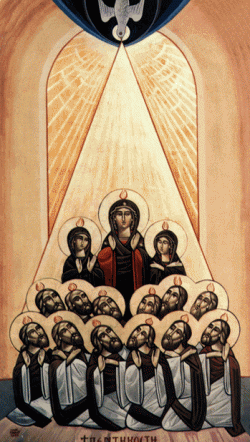This is a description of “Catholic Anglicanism” written by Father Thomas Fraser, rector of St Paul’s Parish, Riverside, Illinois.
When we speak of “Catholic Anglicanism” we mean:
1. an Anglicanism which is defined by, and in all things understood in, the perspective of the fullness of its almost 2,000 year history, not understood as being founded in and defined by the second half of the 16th century;
2. an Anglicanism in full communion with the ancient See of Canterbury, whose core norms and practice are consistent on all levels — provincial, diocesan, parochial — with the teaching of the Anglican Communion worldwide, as expressed by the council of Anglican primates, archbishops, and diocesan bishops known as the Lambeth Conference;
3. an Anglicanism which upholds the historic teaching of the undivided Catholic Church as defined by its seven General Councils:
- The Church on earth is a divinely instituted sacramental body established by Jesus Christ, which will be indwelt by the Holy Spirit until Christ’s coming again at the end of the age;
- The Church on earth, while not infallible, is “indefectible,” that is, it cannot remain in error. In the fullness of time the Holy Spirit will lead it into all truth;
- Christ gave the authority and power to interpret his revelation and apply it to the ongoing life of the Church (to “bind and loose”): to his apostles as a body (neither to any individual bishop alone or any local synod of bishops nor to every individual Christian). Therefore only a general council of all the bishops in the apostolic succession can authoritatively interpret matters of faith and morals (de fide) and alone constitutes the dominically established magisterium of the holy Catholic Church;
- The Church has three states: “militant” on earth, “expectant” in paradise, and “triumphant” in heaven;
- Salvation is a lifelong process or journey beginning with justification (which comes through Baptism) and continues with sanctification (which comes principally, though not exclusively, through the other sacraments);
- Seven sacraments objectively convey salvific grace, including the sacrament of Holy Orders: bishops, priests, and deacons in the Apostolic Succession.
We promote and support an understanding of Anglicanism which — in the words attributed to Archbishop of Canterbury Geoffrey Francis Fisher (1945-61) — proclaims that “we have no doctrine of our own. We only possess the Catholic doctrine of the Catholic Church, enshrined in the Catholic Creeds, and those creeds we hold without addition or diminution.”
More here, in another essay by Father Fraser called “On the balance of thinking and feeling at St Paul’s Parish“. (PDF)
